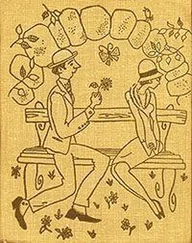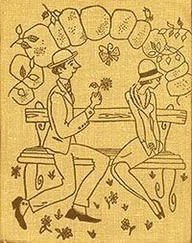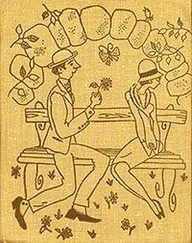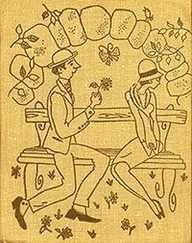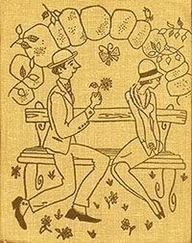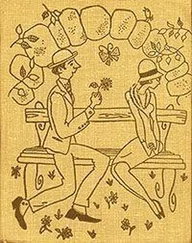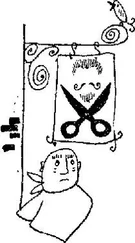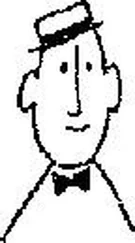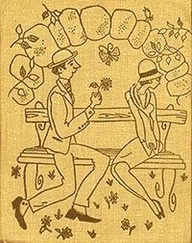Стивен Ликок - Pawn to King’s Four
Здесь есть возможность читать онлайн «Стивен Ликок - Pawn to King’s Four» весь текст электронной книги совершенно бесплатно (целиком полную версию без сокращений). В некоторых случаях можно слушать аудио, скачать через торрент в формате fb2 и присутствует краткое содержание. Жанр: Классическая проза, на английском языке. Описание произведения, (предисловие) а так же отзывы посетителей доступны на портале библиотеки ЛибКат.
- Название:Pawn to King’s Four
- Автор:
- Жанр:
- Год:неизвестен
- ISBN:нет данных
- Рейтинг книги:4 / 5. Голосов: 1
-
Избранное:Добавить в избранное
- Отзывы:
-
Ваша оценка:
- 80
- 1
- 2
- 3
- 4
- 5
Pawn to King’s Four: краткое содержание, описание и аннотация
Предлагаем к чтению аннотацию, описание, краткое содержание или предисловие (зависит от того, что написал сам автор книги «Pawn to King’s Four»). Если вы не нашли необходимую информацию о книге — напишите в комментариях, мы постараемся отыскать её.
Pawn to King’s Four — читать онлайн бесплатно полную книгу (весь текст) целиком
Ниже представлен текст книги, разбитый по страницам. Система сохранения места последней прочитанной страницы, позволяет с удобством читать онлайн бесплатно книгу «Pawn to King’s Four», без необходимости каждый раз заново искать на чём Вы остановились. Поставьте закладку, и сможете в любой момент перейти на страницу, на которой закончили чтение.
Интервал:
Закладка:
Pawn to King’s Four
Stephen Butler Leacock
(THERE IS NO readier escape from the ills of life than in a game of chess. — Francis Bacon, and Eggs.)
“Pawn to King’s Four,” I said as I sat down to the chess table.
“Pawn to King’s Four, eh?” said Letherby, squaring himself comfortably to the old oak table, his elbows on its wide margin, his attitude that of the veteran player. “Pawn to King’s Four,” he repeated. “Aha, let’s see!”
It’s the first and oldest move in chess, but from the way Letherby said it you’d think it was as new as yesterday . . . Chess players are like that . . . “Pawn to King’s Four,” he repeated. “You don’t mind if I take a bit of a think over it?”
“No, no,” I said, “not at all. Play as slowly as you like. I want to get a good look round this wonderful room.”
It was the first time I had ever been in the Long Room of the Chess Club — and I sat, entranced with the charm and silence of the long wainscotted room — its soft light, the blue tobacco smoke rising to the ceiling — the open grate fires burning — the spaced-out tables, the players with bent heads, unheeding our entry and our presence ... all silent except here and there a little murmur of conversation, that rose only to hush again.
“Pawn to King’s Four” — repeated Letherby — “let me see!”
It was, I say, my first visit to the Chess Club; indeed I had never known where it was except that it was somewhere down town, right in the heart of the city, among the big buildings. Nor did I know Letherby himself very well, though I had always understood he was a chcss player. He looked like one. He had the long, still face, the unmoving eyes, the leathery, indoor complexion that marks the habitual chess player anywhere.
So, quite naturally, when Letherby heard that I played chess he invited me to come round some night to the Chess Club ... “I didn’t know you played,” he said. “You don’t look like a chess player — I beg your pardon, I didn’t mean to be rude.”
So there we were at the table. The Chess Club, as I found, was right down town, right beside the New Commercial Hotel; in fact, we met by agreement in the rotunda of the hotel ... a strange contrast — the noise, the lights, the racket of the big rotunda, the crowding people, the call of the bellboys — and this unknown haven of peace and silence, somewhere just close above and beside it.
I have little sense of location and direction so I can’t say just how you get to the Club — up a few floors in the elevator and along a corridor (I think you must pass out of the building here) and then up a queer little flight of stairs, up another little stairway and with that all at once you come through a little door, a sort of end-corner door in the room and there you are in the Long Room ...
“Pawn to King’s Four,” said Letherby, decided at last, moving the piece forward ... “I thought for a minute of opening on the Queen’s side, but I guess not.”
All chess players think of opening on the Queen’s side but never do. Life ends too soon.
“Knight to Bishop’s Three,” I said.
“Knight to Bishop’s Three, aha!” exclaimed Letherby, “oho!” and went into a profound study . . . it’s the second oldest move in chess; it was old three thousand years ago in Persepolis ... but to the real chess player it still has all the wings of the morning.
So I could look round again, still fascinated with the room.
“It’s a beautiful room, Letherby,” I said.
“It is,” he answered, his eyes on the board, “yes ... yes ... It’s really part of the old Roslyn House that they knocked down to make the New Commercial... It was made of a corridor and a string of bedrooms turned into one big room. That’s where it got the old wainscotting and those old- fashioned grate fires.”
I had noticed them, of course, at once — the old-fashioned grates, built flat into the wall, the coal bulging and glowing behind bars, with black marble at the side and black marble for the mantel above . . . There were three of them, one at the side, just near us, one down the room and one across the end . . . But from none of them came noise or crackle — just a steady warm glow. Beside the old-fashioned grate stood the long tongs, and the old-fashioned poker with the heavy square head that went with it.
“Pawn to Queen’s Third,” said Letherby.
Nor in all the room was there a single touch of equipment that was less than of fifty years ago, a memory of a half century . . . Even the swinging doors, panelled with Russian leather, the main entrance on the right hand at the furthest end, swung soundlessly, on their hinges as each noiseless member entered with a murmured greeting.
“Your move,” said Letherby. “Bishop to Bishop’s Four? Right.” . .. Most attractive of all, perhaps, was a little railed-in place at the side near the fire place, all done in old oak . . . something between a bar and a confessional, with coffee over low blue flames, and immaculate glasses on shelves . . . lemons in a bag... Round it moved a waiter, in a dinner jacket, the quietest, most unobstrusive waiter one ever saw ... coffee to this table ... cigars to that... silent work with lemons behind the rails ... a waiter who seemed to know what the members wanted without their asking . . . This must have been so, for he came over to our table presently and set down long glasses of Madeira — so old, so brown, so aromatic that there seemed to go up from it with the smoke clouds, a vision of the sunny vineyards beside Funchal... Such at least were the fancies that my mind began to weave around this enchanted place . . . And the waiter, too, I felt there must be some strange romance about him; no one could have a face so mild, yet with the stamp of tragedy upon it...
I must say — in fact, I said to Letherby — I felt I’d like to join the club, if I could. He said, oh, yes, they took in new members. One came in only three years ago.
“Queen’s Knight to Bishop’s Third,” said Letherby with a deep sigh. I knew he had been thinking of something that he daren’t risk. All chess is one long regret.
We played on like that for — it must have been half an hour — anyway we played four moves each. To me, of course, the peace and quiet of the room was treat enough . . . but to Letherby, as I could see, the thing was not a sensation of peace but a growing excitement, nothing still or quiet about it; a rush, struggle — he knew that I meant to strike in on the King’s side. Fool! he was thinking, that he hadn’t advanced the Queen’s Pawn another square ... he had blocked his Bishop and couldn’t Castle ... You know, if you are a chess player, the desperate feeling that comes with a blocked Bishop . . . Look down any chess room for a man who’s hands are clenched and you’ll know that he can’t Castle.
So it was not still life for Letherby, and for me, perhaps after awhile I began to feel that it was perhaps just a little too still... The players moved so little .. . they spoke so seldom, and so low ... their heads so gray under the light . . . especially, I noticed, a little group at tables in the left-hand corner.
“They don’t seem to talk much there,” I said.
“No,” Letherby answered without even turning his head, “they’re blind. Pawn to Queen’s Four.”
Blind! Why, of course. Why not? Blind people, I realized, play chess as easily as any other people when they use little pegged boards for it... Now that I looked I could see — the aged fingers lingering and rambling on the little pegs.
“You take the Pawn?” said Letherby.
“Yes,” I said and went on thinking about the blind people . . . and how quiet they all were ... I began to recollect a play that was once in New York — people on a steamer wasn’t it? People standing at a bar . . . and you realized presently they were all dead ... It was a silly idea, but somehow the Long Room began to seem like that ... at intervals I could even hear the ticking of the clock on the mantel.
Читать дальшеИнтервал:
Закладка:
Похожие книги на «Pawn to King’s Four»
Представляем Вашему вниманию похожие книги на «Pawn to King’s Four» списком для выбора. Мы отобрали схожую по названию и смыслу литературу в надежде предоставить читателям больше вариантов отыскать новые, интересные, ещё непрочитанные произведения.
Обсуждение, отзывы о книге «Pawn to King’s Four» и просто собственные мнения читателей. Оставьте ваши комментарии, напишите, что Вы думаете о произведении, его смысле или главных героях. Укажите что конкретно понравилось, а что нет, и почему Вы так считаете.

